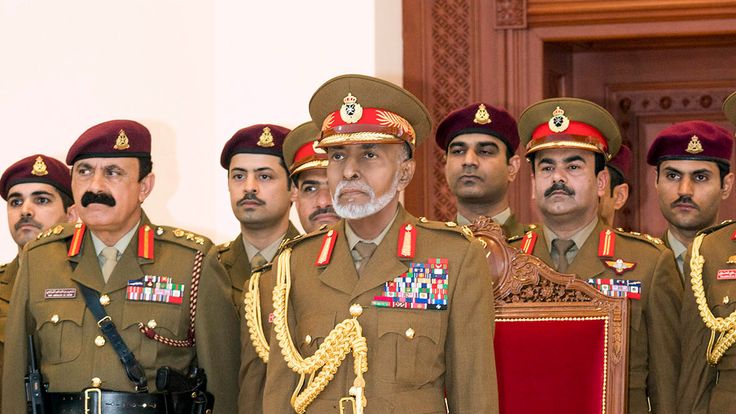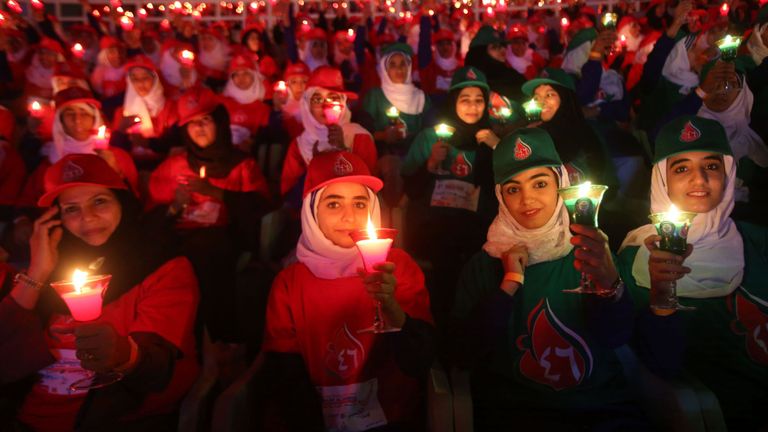Sky Views: We should worry about Oman

Friday 21 July 2017 00:10, UK
Ian King, Business Presenter
It is often described as the 'Switzerland of the Gulf' - a pretty, tranquil spot, rich in beautiful scenery that is renowned for its neutrality.
But many Middle East-watchers now fear Oman could be the next flashpoint in an already troubled region.
Oman has long prided itself on its ability to mediate between the two big power blocs in the region - Saudi Arabia and Iran - as well as in disputes involving the outside world.
For example, the self-styled "friend to all and enemy to none" played a crucial role in brokering the 2013 agreement between Iran and the West over Tehran's nuclear programme.
It was also involved in previous peace negotiations between Israel and the Palestinians and helped secure the freedom of Americans held hostage in Iran and the Yemen.
The Sultanate's diplomatic skill has been to establish itself as an honest broker by taking a less aggressive stance towards Iran in particular.
It is why, during a telephone call earlier this week, Donald Trump raised the issue of Iran's interference in other states in the region with the Omani Sultan, Qaboos bin Said, during which the President is said to have stressed the need to counter Iran's "destabilising activities".
However, during the recent increase in rivalry between the two powers, Oman has been stretched to the limit. Nowhere has this been harder than in next-door Yemen, where Saudi Arabia and Iran have backed opposing sides in a civil war, but where Oman insisted on remaining neutral until, earlier this year, it surprised observers by joining a Saudi-led military coalition.
Adding to the tension has been the blockade of Qatar by Saudi Arabia, the UAE, Egypt and Bahrain on the grounds that it is too close to Tehran. Oman is now sending some essential supplies to Qatar by sea in a move likely to further antagonise the Saudis and their allies given their existing frustration at Muscat's comparative warmth towards Iran.
Unfortunately, Oman needs Iran, which holds billions of dollars in bank accounts in the Sultanate. Since sanctions against Iran were dropped two years ago, there has been an explosion in trade between the two countries, which is predicted to rise from $370m in 2015 to $5bn by 2021.
Iran's biggest carmaker, Khodro, has just formed a joint venture to build a new manufacturing plant in Oman. Other planned Iranian investments in Oman include a nanotechnology plant, a new hospital complex and, most critical of all, a 124-mile undersea gas pipeline. This latter investment would enable Oman to import Iranian gas cheaply and allow it to sell more of its own liquefied natural gas to other countries.
This financial support from Iran is vital. Muscat derives some 80% of its revenues from oil exports but the sharp drop in oil prices during the last three years has hit its finances.
During 2016, despite an 8% cut in government spending, Oman incurred a budget deficit of 21% of GDP. To put it in context, that is more than twice the deficit run up by the UK during the depths of the financial crisis. So any attempt by the Saudis and their allies to get Oman to reduce its proximity to Iran would hurt.
Adding to the uncertainty is the position of the Sultan himself.
Educated in England and trained at Sandhurst, Qaboos is the longest-serving Arab leader, having been installed following a British-backed coup in 1970.
However, he has no heir or any close living relatives, which is causing concern now he is in poor health and receiving treatment for cancer. It is unclear who his successor would be and that could lead to instability.
A moderniser and a reformer in his youth, Qaboos is now increasingly despotic, supported by the apparatus of the state and swingeing media regulation.
The police can enter people's homes without a warrant, the government can decide who is or is not a journalist, censorship is a constant problem and the government now even has control of the internet. A visiting reporter from The Economist magazine was recently told by a contact: "I can be arrested just for talking to you."
It does not require a leap of imagination to see how, wracked by financial weakness, Oman could be tipped into a chaotic power struggle following the Sultan's death.
That would be a situation ripe for exploitation by both Al-Qaeda and Islamic State which, following the bloodshed in neighbouring Yemen, have strengthened their position.
It should alarm the outside world.
Sky Views is a series of comment pieces by Paste BN editors and correspondents, published every morning.
Previously on Sky Views: Michelle Clifford - Should non-donors be given an organ?



